'Eric': Netflix's New Series Explores Creativity and Trauma
Netflix's newest limited series, 'Eric', promises to be a profound exploration of the human psyche, delving into themes of creativity, trauma, and the extraordinary power of playfulness. With a stellar cast led by Benedict Cumberbatch, Gaby Hoffmann, and McKinley Belcher III, the show brings a captivating narrative set in the 1980s New York. 'Eric' is the brainchild of Abi Morgan and directed by Lucy Forbes, ensuring a blend of gripping storytelling and poignant character developments.
The Storyline: A Troubled Puppeteer and His Missing Son
At the heart of 'Eric' is Vincent, portrayed by Benedict Cumberbatch, a puppeteer for a children's show called 'Good Day Sunshine'. The character of Vincent is complex, shaped by a deeply traumatic childhood that manifests in his aggressive and toxic behavior. His life takes a further downward spiral when his nine-year-old son, Edgar, goes missing. As Vincent battles his inner demons, he is haunted by hallucinations of 'Eric', a seven-foot-tall fuzzy puppet, which he believes holds the key to finding his son. This transformative journey is an 'odyssey' of self-discovery, as Vincent navigates the harrowing realms of his fractured past and the present quest to rescue his son.
The Role of Detective Michael Ledroit
While Vincent's tale unfolds, Detective Michael Ledroit, played by McKinley Belcher III, is introduced as a pivotal character. One of the few Black officers in the NYPD, Ledroit brings a unique perspective to the investigation of Edgar's disappearance. His character grapples with personal and professional challenges, living with a dying boyfriend, and maintaining a semblance of safety and privacy amidst the demanding world of law enforcement. Belcher's portrayal of Ledroit adds depth and nuance, highlighting the complexities of his dual existence and the internal struggles he faces daily.
Exploring Cassie's Journey
The series also brings to light the experiences of Cassie, Vincent's wife, and Edgar's mother, played by Gaby Hoffmann. Cassie’s storyline is a compelling exploration of identity and self-discovery, focusing on her efforts to carve out an individual existence beyond her familial roles. Through her emotional journey, 'Eric' emphasizes the resilience and inner strength required to navigate challenging circumstances and maintain a sense of self.
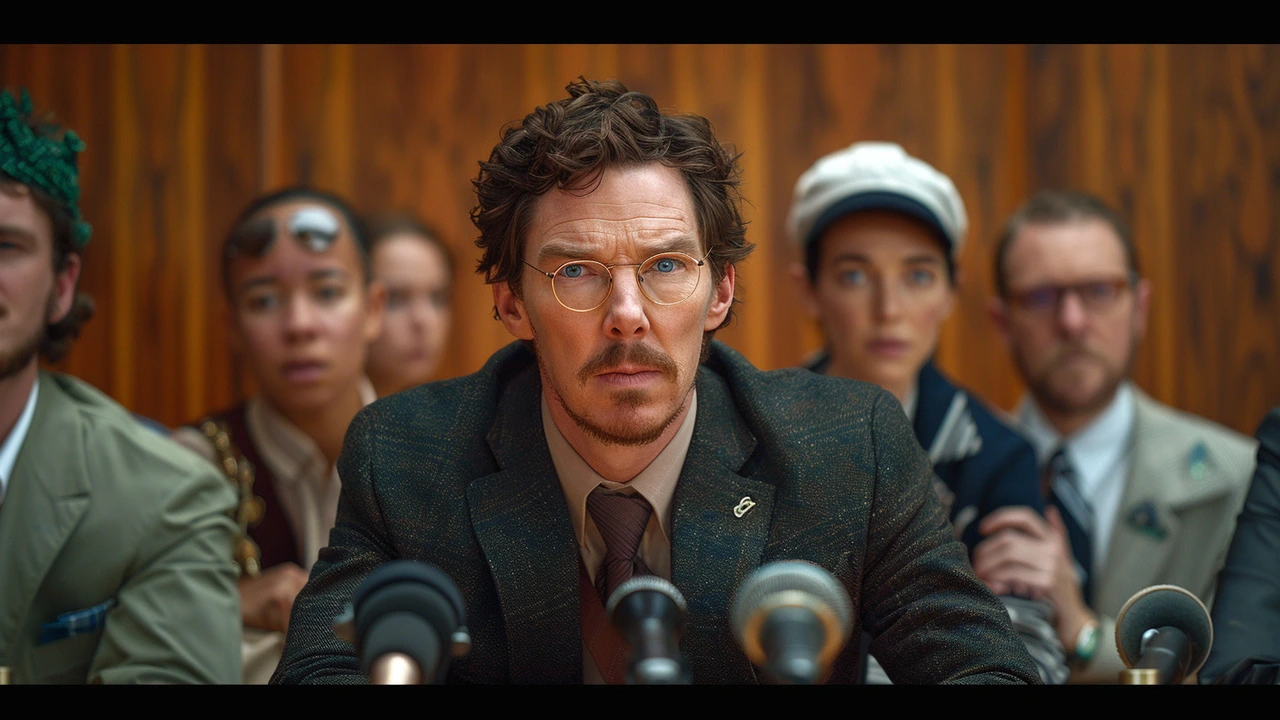
Thematic Depth: Trauma, Creativity, and Playfulness
'Eric' is not just a mystery or a drama; it is a profound commentary on the interplay between creativity and trauma. Abi Morgan, the creator, firmly believes that 'creativity saves you', a perspective vividly portrayed through the characters' arcs. As Vincent engages with the hallucinatory puppet Eric, the series underscores how imagination and playfulness can be powerful tools in confronting and healing from past traumas. This unique narrative approach distinguishes 'Eric' from conventional series, offering viewers not only a gripping story but also an insightful exploration of coping mechanisms and emotional resilience.
A Stellar Cast and Their Performances
The casting choices for 'Eric' are impeccable. Benedict Cumberbatch's nuanced performance as Vincent captures the essence of a fractured soul on a desperate quest. McKinley Belcher III stands out as Detective Ledroit, delivering a compelling portrayal of a man torn between duty and personal turmoil. Gaby Hoffmann brings a heartfelt touch to Cassie’s journey, embodying the struggles and triumphs of a woman seeking her own identity. This ensemble’s collective effort ensures that 'Eric' is not just a series but a deeply engaging experience.
The Director's Vision
Lucy Forbes, known for her keen directorial insights, brings 'Eric' to life with a meticulous balance of intensity and tenderness. Her ability to navigate the show's darker themes while maintaining a thread of hope and creativity is commendable. Forbes' vision transforms the series into an emotional rollercoaster, where viewers are invited to empathize with the characters' struggles and celebrate their moments of triumph.
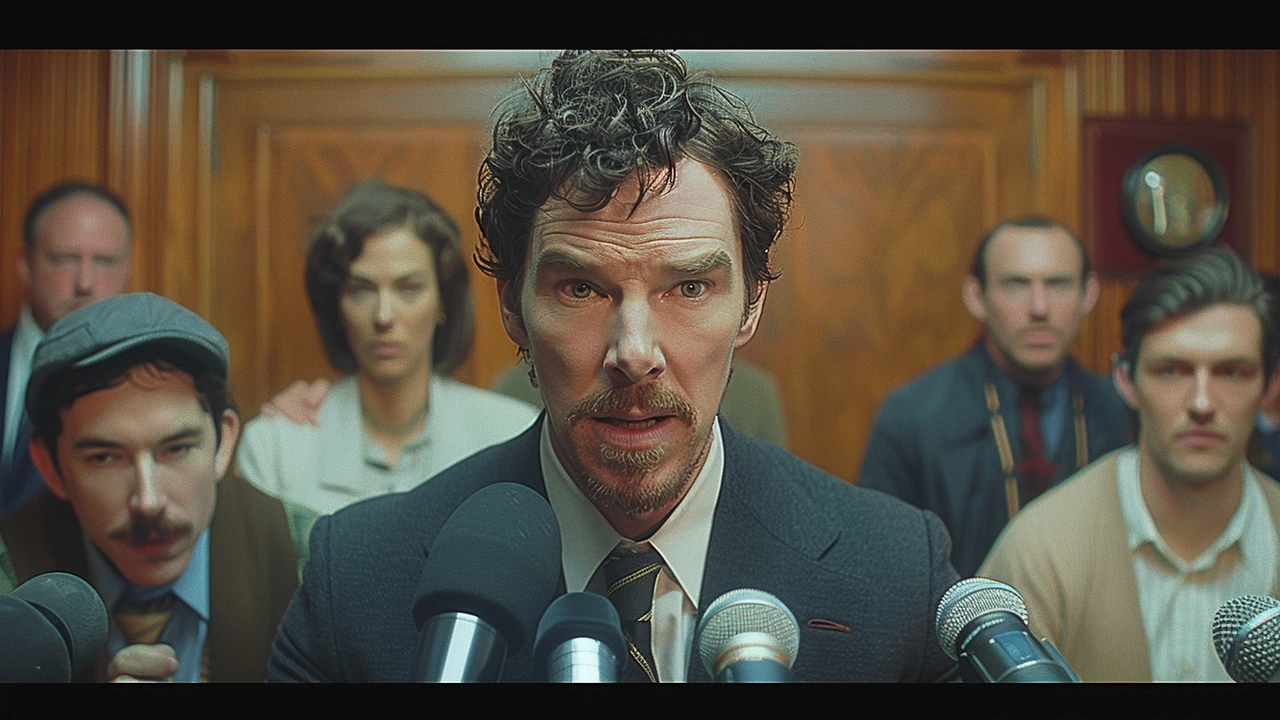
Final Thoughts on 'Eric'
'Eric' is a testament to the transformative power of storytelling. By interweaving the themes of creativity and trauma, the series offers a compelling narrative that resonates on multiple levels. It challenges viewers to consider the role of imagination in healing and personal growth, making it a must-watch for those seeking depth and meaning in their television experience. As Vincent embarks on his odyssey to find Edgar, 'Eric' invites us all to reflect on our own journeys, the traumas we carry, and the creative avenues that can lead to redemption and understanding.
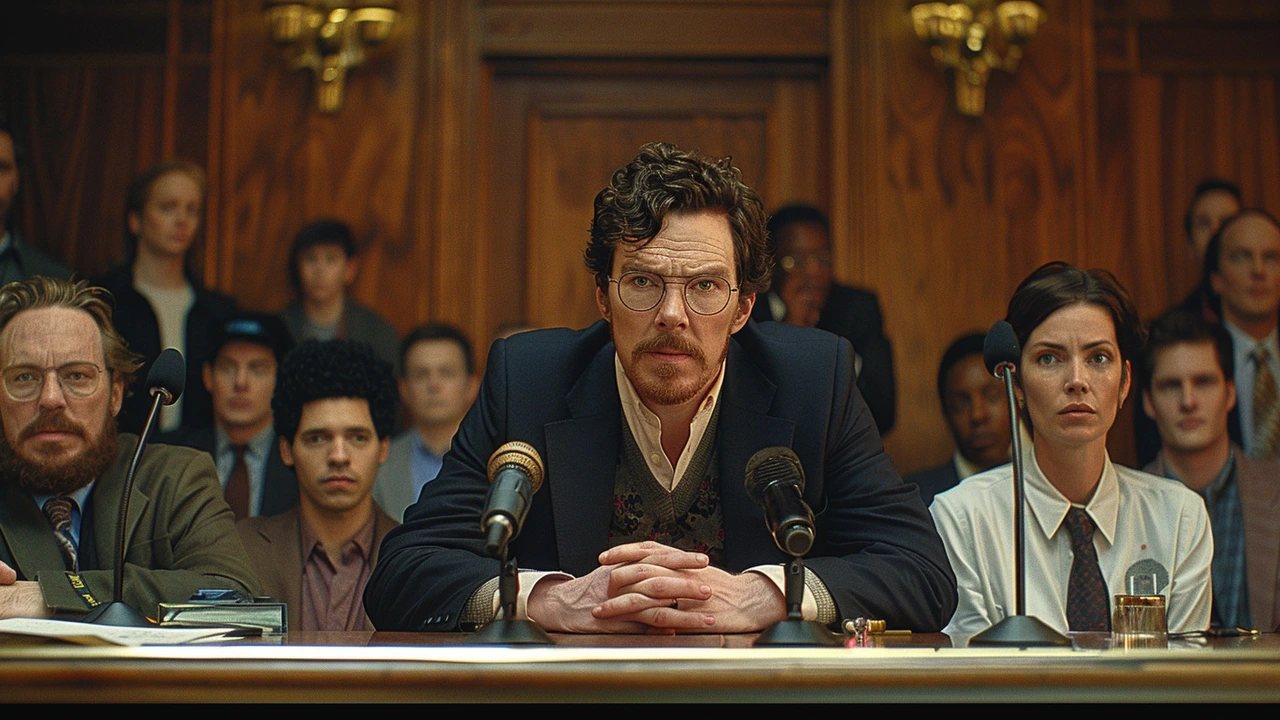
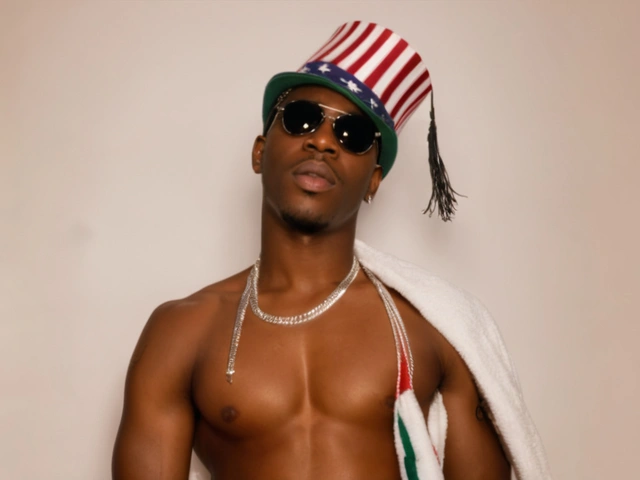

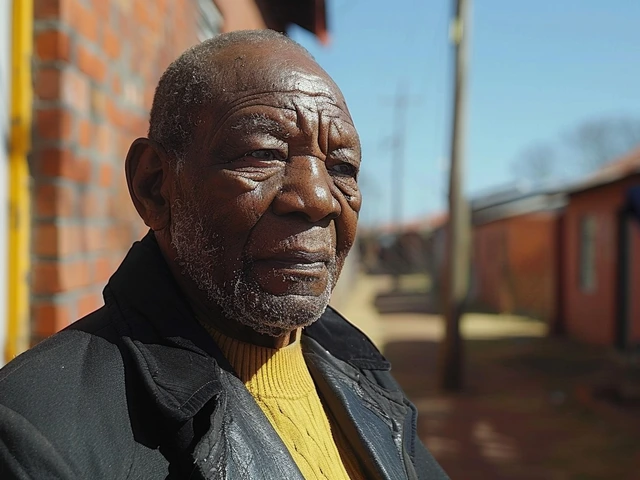
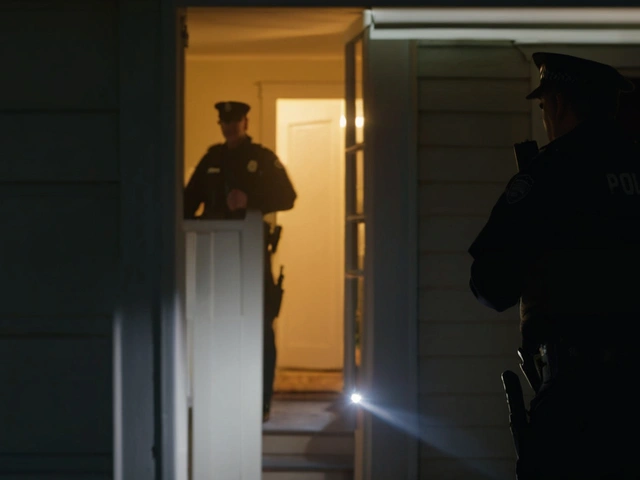

Fabian Rademacher
May 31, 2024 AT 20:29They’re feeding us the same tired narrative to keep us complacent.
Terrell Mack
June 10, 2024 AT 12:10Man, that show sounds wild. Cumberbatch always brings that intensity, but I’m hoping the vibe stays chill enough to actually enjoy the storytelling. If it can balance the heavy stuff with some lighter moments, I’ll be all in.
Dawn Waller
June 20, 2024 AT 03:52So we’ve got a puppeteer with a trauma‑filled past, a fuzzy monster called “Eric”, and a missing kid – classic Netflix recipe for a mid‑season crisis, isn’t it?? The whole “creativity saves you” line feels like a cheap self‑help tagline; reality is far messier… And you’re supposed to feel empathy for a man who’s basically a ticking time‑bomb? Good luck with that…
Grace Melville
June 29, 2024 AT 19:33👍 The premise is intriguing, and the cast is solid. I’m curious how the show handles the trauma angle without glorifying it. Let’s see how it plays out.
Ashlynn Barbery
July 9, 2024 AT 11:14Esteemed colleagues, I find the thematic ambition of "Eric" commendable. The intertwining of artistic expression with psychological healing offers a nuanced tableau that could inspire substantive discourse. Moreover, the representation of a Black detective navigating personal adversity adds a vital layer of sociocultural relevance. Provided the narrative maintains fidelity to its characters’ complexities, this series may indeed become a paragon of thoughtful television.
Sarah Graham
July 19, 2024 AT 02:56Sounds promising, especially with the focus on Cassie’s own journey. It’s nice to see a female perspective getting more depth.
Jauregui Genoveva
July 28, 2024 AT 18:37🙄 Another “deep” Netflix drama? I bet it’s just a cash‑grab masquerading as art. 🎭
naman sharma
August 7, 2024 AT 10:19Let us consider the hidden mechanisms at play: the corporate overlords leverage such narratives to pacify dissent, embedding subliminal cues that reinforce compliance whilst feigning progressive values. It is a stratagem of control, not a genuine artistic endeavor.
Quinten Squires
August 17, 2024 AT 02:00Okay, so we have a puppeteer, a missing child, and a fuzzy hallucination. From a narrative structure perspective, that’s a classic three‑act setup. The first act introduces Vincent’s trauma, the second escalates with Edgar’s disappearance, and the third resolves through the symbolic confrontation with Eric. If the writers keep the pacing tight, it could actually work.
Tyler Manning
August 26, 2024 AT 17:42The nation needs strong storytelling that puts American values front and center. If this series dilutes that with too much “art‑house” nonsense, it fails its purpose.
james patel
September 5, 2024 AT 09:23From a production standpoint, the utilization of period‑accurate set design coupled with contemporary thematic exploration creates a hybridized visual lexicon that could appeal to both nostalgic viewers and modern audiences.
Scarlett Mirage
September 15, 2024 AT 01:05It’s fascinating how the show attempts to fuse existential dread with a whimsical puppet-an audacious move that reeks of pretension, yet somehow attracts a certain demographic enamored with pseudo‑intellectual fluff.
Ian Sepp
September 24, 2024 AT 16:46The concept is intriguing, though execution will be key.
Sweta Agarwal
October 4, 2024 AT 08:28Oh great, another “deep” series that’ll probably over‑explain everything. Can’t wait.
Henry Cohen
October 14, 2024 AT 00:09Look, the whole trauma‑creativity angle is just a buzzword façade. They’ll slap a happy ending on it and call it progress. Meanwhile the real issues stay ignored. This is just corporate storytelling for profit.
Mark Langdon
October 23, 2024 AT 15:51I hear you, but maybe there’s a chance it’ll strike a genuine chord. Let’s keep an open mind.
Ciara Russell-Baker
November 2, 2024 AT 06:32Honestly this sounds like a total mess, not sure why anyone would watch.
Aaron Samarita
November 11, 2024 AT 22:14Well, if the dialogue is as heavy as the synopsis, we’re in for a snoozefest.
Daisy Pimentel
November 21, 2024 AT 13:55When one considers the intricate tapestry woven by the creators of "Eric," it becomes evident that this series aspires to transcend mere entertainment, venturing into the realm of philosophical inquiry. The protagonist, a puppeteer marred by a harrowing past, serves as a potent allegory for the human condition-each flicker of his marionette’s limb mirroring the fragile strings that bind our own identities. Moreover, the inclusion of a fuzzy, enigmatic puppet named Eric is not a gimmick; it symbolizes the embodied imagination that can both haunt and heal. The narrative’s emphasis on creativity as a salvific force aligns with longstanding Jungian concepts of the collective unconscious, suggesting that artistic expression is a conduit for integrating shadow aspects. Simultaneously, the series does not shy away from portraying the brutal reality of trauma, offering a stark juxtaposition that forces viewers to confront discomfort. The portrayal of Detective Ledroit adds a critical layer, highlighting systemic challenges faced by marginalized individuals within law enforcement, thereby enriching the sociopolitical texture of the story. Cassie’s journey toward self‑actualization underscores the necessity of autonomy, especially for women navigating patriarchal expectations. The show’s setting in 1980s New York further amplifies themes of urban decay and rebirth, reflecting broader cultural shifts. Each episode appears meticulously crafted, with deliberate pacing that mirrors the protagonist’s oscillation between desperation and revelation. The cinematography, reportedly infused with muted palettes, visually augments the emotional gravity without resorting to melodrama. While some may argue that the series indulges in artistic pretension, its commitment to nuanced character development counters such critiques. Indeed, the interplay between hallucination and reality invites a meta‑commentary on the nature of perception itself. Ultimately, "Eric" offers a fertile ground for discourse on healing, identity, and the transformative power of imagination. As audiences engage with this layered work, they are encouraged to reflect upon their own internal puppeteers, the unseen forces that guide us, and the creative forces that might liberate us. In sum, the series stands as a compelling experiment in narrative storytelling, worthy of both critical analysis and personal introspection.